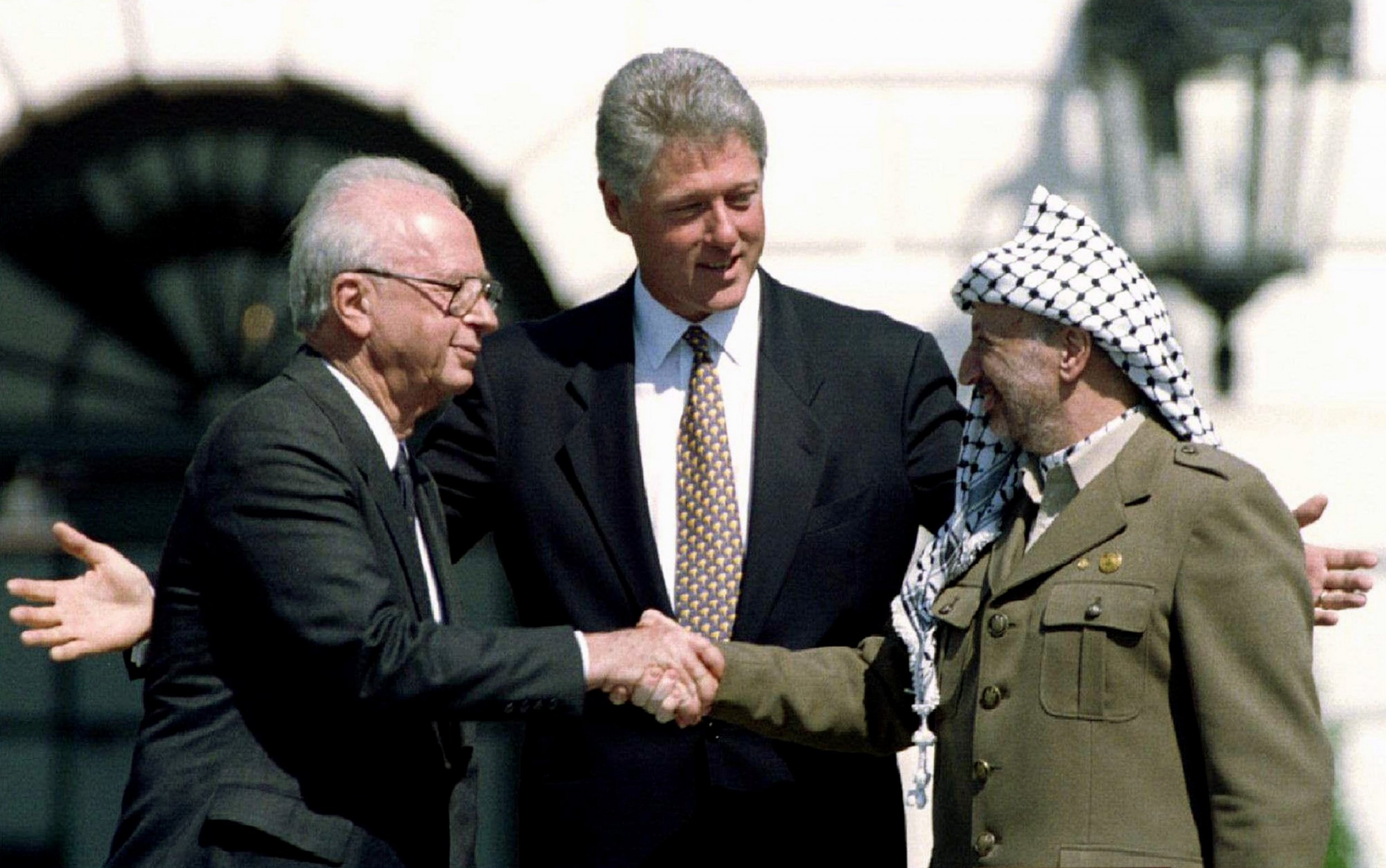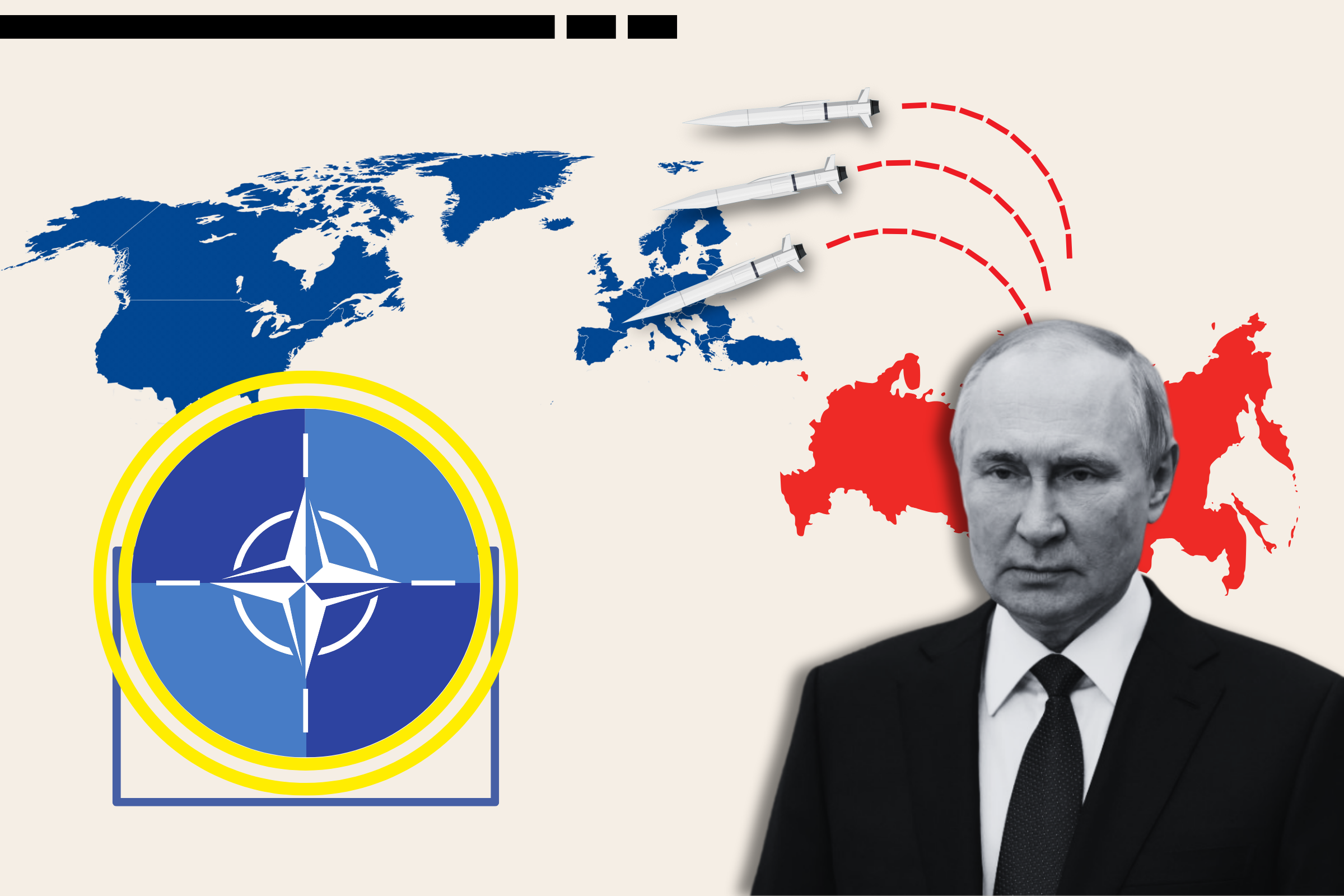
On Sunday, Secretary of State John Kerry left the door open to a possible move by President Obama on the Israeli-Palestinian conflict during his remaining weeks in office. In remarks at the Brookings Institution's Saban Forum, Kerry said no decision has been reached yet, according to Israel's Haaretz daily.
I was in the Cabinet Room at the White House on December 23, 2000, when President Bill Clinton, faced with making a similar decision at the end of his presidency, read to us—eight Israeli and Palestinian delegates plus nine administration officials—what came to be referred to as "the Clinton Parameters."
After he finished reading, Clinton added:
I believe that this is the outline of a fair and lasting agreement. It gives the Palestinian people the ability to determine their future on their own land, a sovereign and viable state recognized by the international community, Al-Quds as its capital, sovereignty over the Haram, and new lives for the refugees.
It gives the people of Israel a genuine end to the conflict, real security, the preservation of sacred religious sites, the incorporation of 80 percent of the settlers into Israel, and the largest Jewish Jerusalem in history recognized by all as its capital.
Related: With the Election of Trump, the Two-State Solution Is at Stake
The president concluded:
This is the best that I can do. Brief your leaders and tell me if they are prepared to come for discussions based on these ideas. If so, I would meet them next week separately. If not, I have taken this as far as I can. These are my ideas. If they are not accepted, they are not just off the table; they also go with me when I leave office.
The Israeli government voted unanimously in favor of the American proposal. Prime Minister Ehud Barak called President Clinton and informed him, both aware that Arafat had yet to respond. I personally delivered Israel's official positive response to the president.
Regrettably, and tragically, Chairman Arafat's response was, for all practical purposes, a negative one. The first Palestinian response, conveyed on January 1, 2001, concluded:
We cannot, however, accept a proposal that secures neither the establishment of a viable Palestinian state nor the right of Palestinian refugees to return to their homes.
Nevertheless, 16 years later, the Clinton Parameters are anything but off the table. To the contrary: They are as valid and relevant today as they were then.
As President Clinton did, President Obama should act before he leaves office on January 20, building on these parameters.
While there is, at best, only a slim chance for a comprehensive permanent status agreement in the foreseeable future, the conflict will eventually be resolved, and once it is, the package deal will be very similar to the Clinton Parameters, based on the principle of two states for two peoples.
But this is no longer sufficient.
During the ensuing years, facts on the ground in the West Bank and Gaza have changed dramatically. Distrust between Israelis and Palestinians has reached the lowest rung. The international community questions whether the current Israeli government is truly committed to a two-state solution. Violence and fundamentalism in the region have escalated drastically.
This is why President Obama should present his blueprint for what a two-state solution should look like, including: an end to the conflict; boundaries based on the June 4, 1967 lines with mutually agreed-upon land swaps, notably incorporating the main settlement blocs within Israel's territory; the rehabilitation of Palestinian refugees primarily within the Palestinian state; Jewish Yerushalayim and Arab Al Quds as capitals, with a special regime in the "Historic Basin" surrounding Jerusalem's Old City guaranteeing freedom of worship; a robust security framework safeguarding Israel's security, and a demilitarized Palestine state.
The incoming Trump administration, to garner international support, should combine the Clinton Parameters, George W. Bush's 2004 letter to then-Israeli Prime Minister Sharon citing "new realities on the ground" and the Obama Blueprint and enshrine them in a U.S.-initiated United Nations Security Council proposal, which would clearly demarcate the path toward a two-state reality.
President Obama during his remaining time in office—and thereafter President Trump—should also encourage constructive independent steps by either party that move them closer to an agreement.
President-elect Trump, in interviews since the election, said he would like to forge an Israeli-Palestinian agreement, which he termed "the ultimate deal." He declared, "As a deal maker, I'd like to do…the deal that can't be made." The moves described above would buttress that effort.
The Israeli-Palestinian status quo is untenable. Time works in nobody's favor. For Israelis, a two-state reality is required to maintain a Jewish democracy within secure borders. Palestinians need a sovereign state. For the United States, restoring its standing in the region and diminishing instability there are national interests.
Moreover, progress toward a two-state solution must be made before the multi-dimensional, political conflict turns into a religious war that would surely engulf the region. As President Obama declared during his final speech on national security Tuesday, without "sustained diplomatic efforts" there, "the more you will be called upon to clean up after the failure of diplomacy."
So, President Obama, before you leave office, present your blueprint. And President-elect Trump, as soon as you can after you take office, embrace the Clinton Parameters, Bush's letter and hopefully the Obama Blueprint, and craft a responsible American proposal for a United Nations Security Council resolution.
Gilead Sher, a former Israeli senior peace negotiator who was chief of staff to Prime Minister Ehud Barak, is co-chair of Blue White Future, an Israeli organization advocating for the two-state solution, and heads the Center for Applied Negotiations at the Institute for National Security Studies in Tel Aviv .
Read more from Newsweek.com:
Elliott Abrams: Israel and the UN's Theatre of the Absurd
Michael Rubin: Three Tests in the Middle East for the New President
Elliott Abrams: Fatah Banishes Itself to the Sidelines
Uncommon Knowledge
Newsweek is committed to challenging conventional wisdom and finding connections in the search for common ground.
Newsweek is committed to challenging conventional wisdom and finding connections in the search for common ground.
About the writer
To read how Newsweek uses AI as a newsroom tool, Click here.








